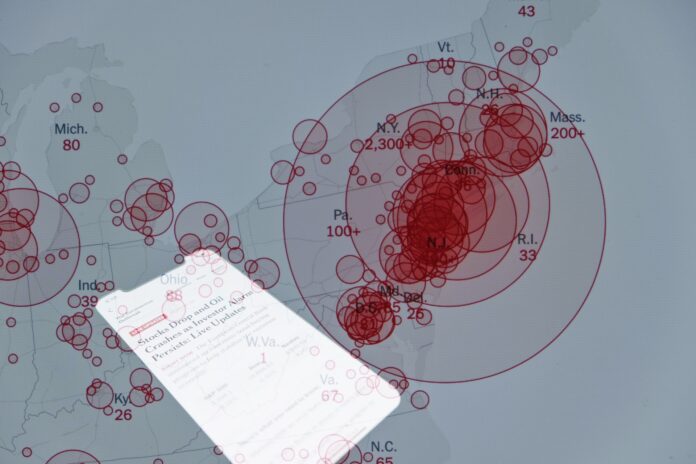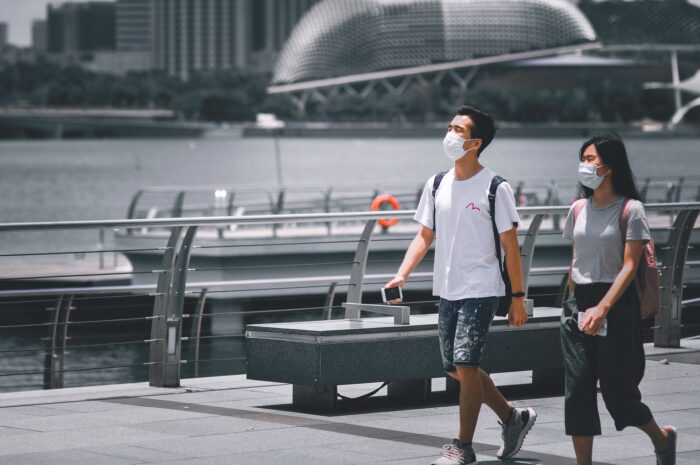
The COVID-19 pandemic has been quite unlike anything we’ve ever experienced before. It’s affected countless people, all across the globe, claiming the lives of many and affecting many more in a range of ways.
As Console & Associates, P.C. puts it, “Tens of millions of people across the United States have lost their jobs or been laid off due to the COVID-19 pandemic. This has been unprecedented national health and economic crisis.”
Naturally, in the wake of such an unprecedented and disastrous situation, a lot of people all across the US are finding themselves with questions regarding their rights, their employment, and their professional situations.
With so many people losing their jobs or under the threat of being made unemployed in the near future, it’s vital for you to have the information you need regarding what you can do if you lose your job, what you’re entitled to, and what action you need to take.
With that in mind, here are some commonly asked questions regarding COVID-19 and unemployment in the US.
How do I apply for unemployment benefits?
In order to receive unemployment benefits, you’ll need to file a claim with the unemployment insurance program in your particular state. Each state has its own systems and methods of application; some will allow you to apply online or over the phone, while others will prefer in-person applications.
You should contact your own state’s program as soon as possible and provide the necessary information regarding your employment and situation in order for your eligibility to be confirmed and your benefits to be calculated.
What if I live and work in different states?
If you live in one state but were employed in another, you should usually file the claim for unemployment benefits in the state where you worked. If you worked in multiple states, you may want to contact the necessary insurance agencies in each one and ask for advice on how best to proceed.
What if I’m an independent contractor?

If you’re an independent contractor, you may still be eligible for unemployment benefits under the CARES Act. This will depend on your specific circumstances and the systems in place in your home state. States are allowed to provide assistance to contractors and self-employed individuals via the Pandemic Unemployment Assistance (PUA) program. This can provide up to 39 weeks of benefits in total.
What if I quit my job?
This depends on the situation. If you decided to quit your job out of fear of getting coronavirus in your day to day work, but you have no children or dependents, along with no prior health conditions of your own, you probably will not be eligible for any kind of assistance via the CARES Act or the PUA program.
However, there are certain situations and stipulations that could allow you to qualify. For example, if you caught coronavirus in the past and then felt you were unable to perform your job effectively afterward, you may be eligible for benefits.
Similarly, if your healthcare provider advised you to self-isolate or try to minimize your risks of catching the virus due to health concerns, you may be eligible for assistance via PUA. To learn more and get a clearer picture of your situation, contact your state’s unemployment insurance agency.
What if I was furloughed but my employer is asking me to go back to work?

If you’ve been furloughed by an employer but their business has now reopened and needs you back at work, you are recommended to return, barring any unusual circumstances. In order to receive unemployment benefits of any kind, you usually need to accept any offer of employment that arrives. Rejecting a request to go back to work may exclude you from any further benefits.
What if I feel that an offer of employment is not suitable or safe?
If a situation arises where a claimant has been offered employment and not accepted, the state should give the claimant the chance to explain themselves. This will be your opportunity to provide evidence and justification for your decision.
For example, you may argue that you feel that the risks of accepting the job were too great for the employment offer to be considered safe. Claimants can then file an appeal if their first attempt to convince the state is unsuccessful
What is the Lost Wages Assistance program?

The Lost Wages Assistance (LWA) program has been introduced during the COVID-19 crisis to help those who have been made unemployed or partially unemployed due to the pandemic. It provides you with an additional $300 per week, on top of your regular unemployment benefits.
In order to be eligible, you need to meet certain eligibility criteria, which include receiving weekly benefits during recent months and being able to provide a self-certification to prove that you are unemployed or partially unemployed because of COVID-19.
What if I have to take some time off because I caught COVID-19?
If you’re still technically employed but just need to take some time off to self-isolate and deal with the symptoms of COVID-19, the best thing to do is to make use of your employer-paid time off, which should cover all of your wages for the period you’re unable to work. If this is not available, paid medical leave may be an option or you may have to apply for assistance via the PUA program.
What is Pandemic Emergency Unemployment Compensation (PEUC)?

The Pandemic Emergency Unemployment Compensation (PEUC) program is able to offer up to an additional 13 weeks of benefits on top of your regular unemployment benefits, plus an extra $600 per week via the Federal Pandemic Unemployment Compensation (FPUC) program.
Conclusion
Millions of jobs have been lost in America due to the COVID-19 pandemic, and countless people find themselves frightened for their futures and worried about their financial situations. Hopefully, these questions and answers will help to shed some light on your situation and guide you in the right direction. The best course of action is to contact your state’s agency as soon as possible and get the assistance you need without delay.








